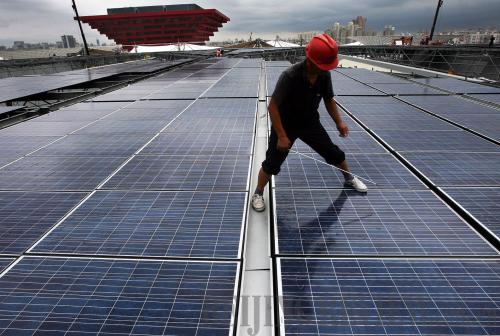|
 |
|
SUN POWER: Solar energy is used extensively at the 2010 Shanghai World Expo (XINHUA) |
Continuity in policy
China's new energy industry has developed from piecemeal in the past to a systematic and strategic level. The preferential policies are the key.
As China has met or exceeded the targets set in its 11th Five-Year Plan to raise the shares of non-fossil fuels in primary energy consumption, its 12th Five-Year Plan (2011-15) signifies a new phase.
Government's support has greatly advanced technology progress and the development of new energy industries. An example is that the number of solar PV power generation technology patent applications in 2009 increased 23-fold from 2000. From 1990 to 2009, Chinese patents accounted for 13 percent of all solar energy related technology patents, second only to Japan, according to the Analysis Report of Solar Energy PV Electricity Generating Patent Technology.
Energetic future
Despite the progress, experts warn the industry is still in its infancy, facing a variety of challenges.
Nearly 90 percent of polysilicon products are exported, but the global financial crisis contracted overseas demand, causing overproduction, which is being addressed by stimulating the domestic market.
There are now signs the domestic market is growing.
A national program, introduced in March 2009 to promote the construction of integrated PV applications and rooftop systems, would give a fixed subsidy of about 15-20 yuan ($2.2-2.9) per watt of installation. Another program four months later aims to subsidize 600 MW of PV projects over the next two to three years. The two programs have activated the domestic market for new energy sectors, at least in terms of solar energy application, said analyst Yu Tiantian from the California-based Semiconductor Equipment and Materials International, an international industry association.
"[Therefore,] governments at all levels need to do more and provide a more profitable business environment for the solar energy industry as well as for other renewable energy sectors," said Shi Dinghuan. |